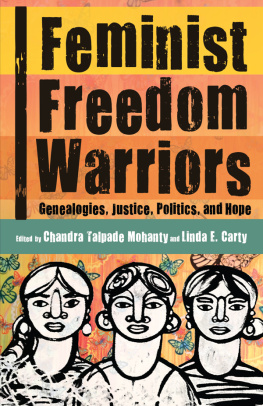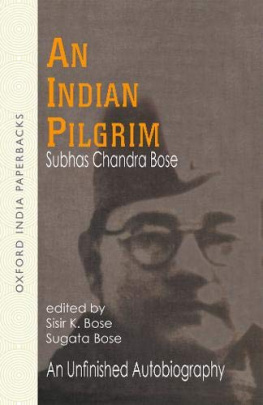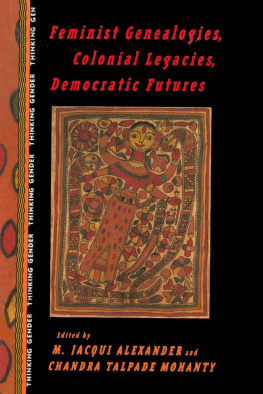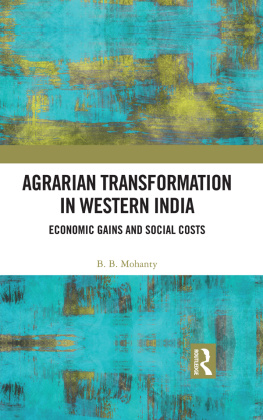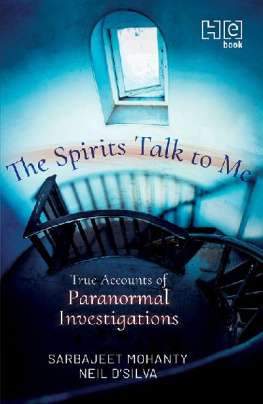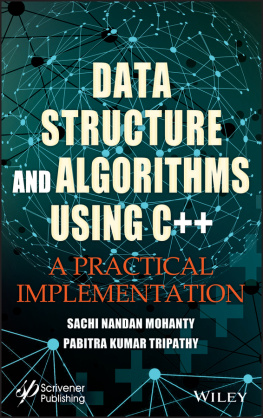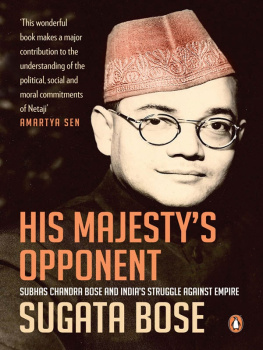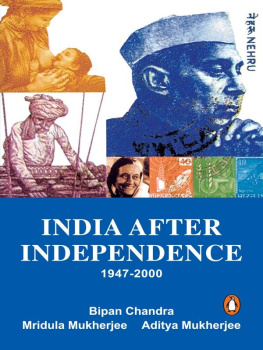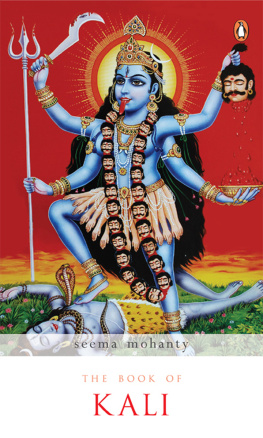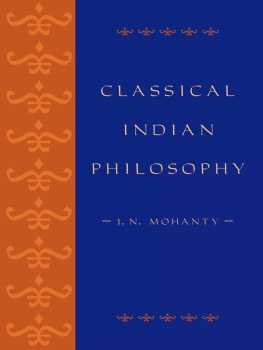Praise for Feminist Freedom Warriors
There are some books that will make a genuine difference because they are drawn from the experiences of those who have made a genuine difference. This is one of those books. By offering reflections from, and conversations between, feminist freedom warriors, this book is a reminder of just how much we need revolutionary, decolonial, anticapitalist, and antiracist feminism; how in fighting against structures, we are fighting for our lives. Each of these accounts of becoming and being feminists committed to radical transformation teaches us just how much we can do from what has been done; how we can make use of our imaginations, words, memories, knowledge, feelings, connections, and alliances in the project of building a more just world. This is a deeply inspiring and inspired collection.
Sara Ahmed, author of Living a Feminist Life
In Feminist Freedom Warriors liberation is historicized, imagined, and enacted as contested struggle and dialogue. The intellectual-activist thinkers within explain that feminist praxispoetics, pedagogies, and activismis an ongoing refusal of global capitalism and colonialism. Comprising stories and interviews, Feminist Freedom Warriors shows that engendering political change, across racial and sexual identifications, is tied to the uneasy work of imagining solidarities outside our present (neoliberal) system of knowledge. What stands out, beautifully and urgently, is the praxis of sharing how to refuse infrastructures of violence. Feminist Freedom Warriors captures how sharing and talking and learning, and the struggle to collaborate, are tied to the grounded work of building new futures.
Katherine McKittrick, associate professor,
Department of Gender Studies, Queens University
This collection brings together feminist visionaries to think deeply about how we sustain our movements, each other, and ourselves in and through ongoing feminist struggle. Mohantys and Cartys dialogues with the contributors reveal crucial insights into building and theorizing multi-issue movements that rely on intersectional, antiracist, transnational feminisms. The collaborative endeavor illuminates the persistent intellectual capaciousness and radical hope of these scholar-activists. The contributors complex engagements with feminist theory and praxis across geopolitical frameworks reaffirm coalitional possibilities so necessary in these turbulent times.
T. Jackie Cuevas, author of Post-Borderlandia
Feminist
Freedom
Warriors
Chandra Talpade Mohanty
and Linda E. Carty
with generous assistance from Taveeshi Singh
2018 Chandra Talpade Mohanty and Linda E. Carty
Published in 2018 by
Haymarket Books
P.O. Box 180165
Chicago, IL 60618
773-583-7884
www.haymarketbooks.org
ISBN: 978-1-60846-898-0
Trade distribution:
In the US, Consortium Book Sales and Distribution, www.cbsd.com
In Canada, Publishers Group Canada, www.pgcbooks.ca
In the UK, Turnaround Publisher Services, www.turnaround-uk.com
All other countries, Ingram Publisher Services International,
This book was published with the generous support of Lannan Foundation and Wallace Action Fund.
Cover artwork from Migration Is Beautiful by Favianna Rodriguez.
Printed in Canada by union labor.
Library of Congress Cataloging-in-Publication data is available.
10 9 8 7 6 5 4 3 2 1
Acknowledgments
We are deeply grateful to the participants to date in the ongoing Feminist Freedom Warriors video archive project (feministfreedomwarriors.org).
Profound gratitude to all of our collaborators and assistants on this projectTaveeshi Singh, whose dedication, creativity, and smarts are integral to both the website and this book, and Kim E. Powell, Marlon Walcott, Jingyi Wang, and Breanna Dickson for impeccable artistic and technical support.
Introduction
An Archive of Feminist Activism
Conversations with Margo Okazawa-Rey, Angela Y. Davis, Himani Bannerji, Minnie Bruce Pratt, Amina Mama, Ada Hernndez-Castillo, and Zillah Eisenstein
Linda E. Carty and Chandra Talpade Mohanty
The value of feminism or the value of antiracist, anticapitalist, anti-imperialist feminisms that are Marxist-inflected feminisms is that it allows us to think about the framework of our analysis or of our organizing at the same time as we use that framework to think about whatever it is we are examining. That is a habit that most people have not been able to embrace, because it is a habit that contravenes disciplinary thinkingin disciplinary thinking the framework is what enables everything else, so once you begin challenging the framework, everything falls apart. And feminism allows us to trouble the framework, allow things to fall apart, and at the same time put them back together. It allows us to imagine something entirely different.
Angela Y. Davis
Feminism is at stake in how we generate knowledge; in how we write, who we cite. I think of feminism as a building project: if our texts are worlds, they need to be made out of feminist materials. Feminist theory is world-making. This is why we need to resist positioning feminist theory as simply or only a tool, in the sense of something that can be used in theory, only then to be put down or put away. It should not be possible to do feminist theory without being a feminist, which requires an active ongoing commitment to live ones life in a feminist way.
Sara Ahmed, Living a Feminist Life
This book is a labor of love and sisterhood. It grows out of and is anchored in an ongoing digital archive project called Feminist Freedom Warriors (FFW), begun in 2015 (feministfreedomwarriors.org). The digital archive project was born out of our engagement with anticapitalist, antiracist feminist struggles as women of color from the Global South. FFW is a project about cross-generational histories of feminist activism addressing economic, antiracist, social justice, and anticapitalist issues across national borders. These are stories of sister-comrades, many of whom we have worked and struggled with over the years, whose ideas, words, actions, and visions of economic and social justice continue to inspire us to stay the course. The book is a companion to the larger digital project, highlighting the stories and analytical frameworks of seven prominent feminist scholar activists: Margo Okazawa-Rey, Angela Y. Davis, Himani Bannerji, Minnie Bruce Pratt, Amina Mama, Ada Hernndez-Castillo, and Zillah Eisenstein.
that people are transformed within movements: Our movements have inequalities within them, because we are formed in conventional, classed societies. Within movements we have to change ourselves as well as achieve things for women.
All seven women have been or are connected to the academy in their various landscapesAngela, Margo, Zillah, and Minnie Bruce in the United States; Himani in Canada and India; Amina in Nigeria, the UK, South Africa, and now the United States; and Ada in Mexico. All of them have been involved in multiple social justice movements, sometimes in key leadership roles, and all have produced knowledge that has had an impact on a broad range of intellectual and political projects. Archiving these stories, then, is a political project about challenging mainstream narratives of feminism, of communism and the left, and mapping the complexity of identity-based social movements, and of intellectual and political work in the academy. Often, mainstream narratives separate intellectual work from activist or movement work. Sometimes these are narratives where the production of knowledge, or intellectual production, is seen as institutionalized and abstracted from what is happening on the ground. However, much of our own work, and that of our sister-comrades, has been about figuring out those connections and being completely convinced that because communities struggle on the basis of ideas and visions of justice and equity, the intellectual and political work of knowledge production is always key to all forms of social movements and resistance. Thus, we talk about the individual place-based stories and narratives of coming of age as politicized feminists in different communities and parts of the world, but we also highlight what these reflections say about the movements on the ground and the geopolitical, ideological, as well as intellectual and political context in which these anticapitalist frameworks were generated. We draw attention to how particular kinds of connections across borders are made, and we suggest how this kind of thinking and activism leads to an expansive imagination of what radical transformation needs to be.





